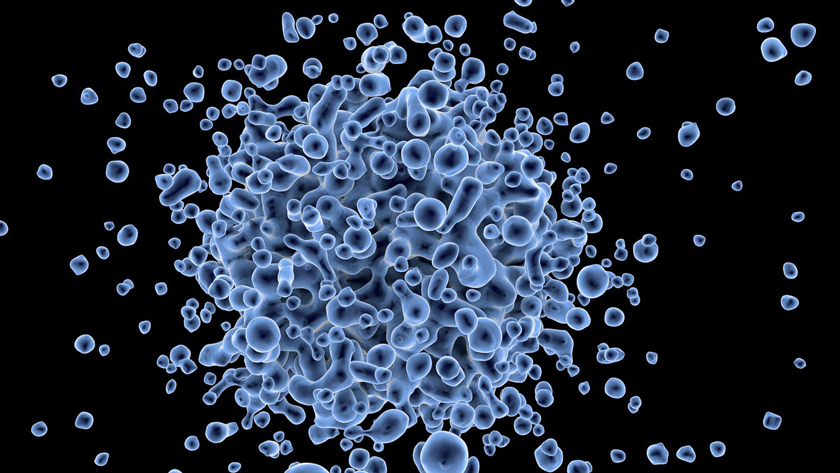Targeting the ecosystem to make cancer extinct

The ICR and The Royal Marsden have embarked on an ambitious research collaboration to disrupt the cancer cell ecosystem. Ben Hargreaves explores the project to determine exactly how the partners aim to make the human body an ‘inhospitable environment’ to tumours.
Cancer is the major therapeutic focus area for the pharmaceutical industry. Oncology trial starts reached historic highs in 2021, and a record 30 oncology novel active substances were launched globally the same year, according to research by IQVIA. The reason for this focus is relatively simple: cancer is the second leading cause of death worldwide, and the number of new cases per year is growing. As a result, there is a pressing need for new innovations to treat those living with the disease.
In recent years, those involved in the research and development of new oncology treatments have delivered ground-breaking therapies. CAR-T therapies have arrived and offer a potential treatment option where none had been effective previously. PD-1/L1 inhibitors provide a means to effectively target cancer cells and allow the immune system to aid in their destruction. ADCs have also been developed to become more effective, whilst being better able to preserve healthy cells. As part of this wave of R&D, the Institute of Cancer Research (ICR) and The Royal Marsden NHS Foundation Trust are now targeting the ‘cancer ecosystem’ to create a new means of eradicating tumour cells from patients.
Attacking from all angles
This approach is only possible due to the rapid advances that have been made in our understanding of the cancer ecosystem and the technological advances to supplement this knowledge. Through the use of genomic, proteomic, epigenetic, immunopeptidomic, and microscopy technologies, scientists are better able to examine cancer cells, molecules, and ecosystems at unprecedented resolution.
In terms of therapeutics, the team plan to approach the research from various angles. ICR stated that they are looking at using viruses alongside radiotherapy to ‘supercharge’ the immune system. The organisations will also look at drugs that target the healthy tissue that support tumours, and an artificial intelligence approach.
The organisations state that AI will be used to find new ways to combine drugs or adjust their dosing, with the aim of disrupting cancer’s evolution within its ecosystem. The overall aim is to discover new ways to extend the length of time that people can survive with advanced cancer. The project will run for five years, and the researchers have set themselves a target of doubling survival of people with advanced cancer within a decade.
Kristian Helin, chief executive at the ICR, explained in more detail to pharmaphorum the overall strategy: “A major priority of the strategy is to establish new interdisciplinary centres which will focus on strengthening our pre-clinical research, translating fundamental discoveries into the clinic, and using multi-omics data and artificial intelligence in diagnostics. Another focus is ensuring that we remain world-leading in our current research and clinical programmes by investing in infrastructure, the newest technologies and by continuing to develop and recruit the most outstanding scientists and clinician-scientists. We will implement the elements of the strategy as fast as possible, and we expect that this will have significant impact on our ability to make breakthroughs.”
Setting goals
The two partners have their respective positions, seeing ICR take the lead on research and The Royal Marsden’s leverage its cancer centre, which is a specialist cancer treatment hospital based in London, and also an education specialist. ICR will use its discovery science to understand the genetic and molecular basis of cancer, and the cancer ecosystem. The organisation will carry out the translational research to diagnose and target cancer more effectively. Once the discovery phase is completed, The Royal Marsden will use its clinical capabilities to advance studies and build evidence for the use of potential treatments in patient care.
Helin outlined how the two partners’ employees and work often overlap: “More than a quarter of the team leaders at the ICR have clinical appointments at the Royal Marsden, and many of the consultants at the Royal Marsden have honorary positions at the ICR. The ICR and the Royal Marsden have a joint research strategy ensuring that discoveries made in the lab move forward to the clinic and that clinical observations can be further studied our labs.”
He continued, “The research in the ICR laboratories is providing a fundamental understanding of cancer biology, the identification and preclinical validation of new targets for cancer therapy, and the development of new promising drugs that can be progressed in clinical trials.”
In this most recent research project, the partners have outlined five areas where they can focus their efforts:
- Predicting how cancer evolves within different ecosystems – and devising low-dose strategies that avoid selecting for drug resistance, or drug combinations that cut off cancer’s escape routes
- Revealing how different types of cells within a tumour can team up and work together to shape their ecosystems – potentially opening up new targets for treatment
- Seeking ways to target the once healthy tissue co-opted by the cancer within the tumour ecosystem with drugs to make the body inhospitable for the cancer
- Exploring how to identify cancer earlier or detect its return much sooner using tests which spot minute amounts of the tumour’s DNA within the bloodstream
- Finding ways to use viruses, targeted drugs, and radiotherapy together to give the immune system the edge in its evolutionary arms race with cancer
A fresh approach
As part of its announcement, the ICR referenced the cures some people have seen in advanced cancers, who otherwise would have no treatment options and would be destined to die from their disease. The research being carried out between both partners will increase the likelihood that more solutions can be found for further cases of advanced-stage cancer, and that more people will be able to live beyond what was previously possible.
“The fresh approach will unravel and disrupt cancer’s ecosystems to make cancer more vulnerable to new treatments. For instance, we hope to tip the balance in favour of the immune system – so immunotherapies work better for more patients. We will also use artificial intelligence to help control cancer within its ecosystem, using unique treatment combinations. For example, this year, ICR scientists created a prototype test that can predict which drug combinations are likely to work for patients in as little as 24 to 48 hours using small tumour samples. The method, which involves proteomic analysis, is a move forward from the current focus on genetic mutations to predict treatment response and it could greatly improve our ability to personalise treatment for patients,” Helin said.
Wider than the established partnerships, ICR also stated it is seeking to increase funds for research, invest in new collaborative research centres, and to form stronger partnerships with industry and academic institutions, both in the UK and globally.













